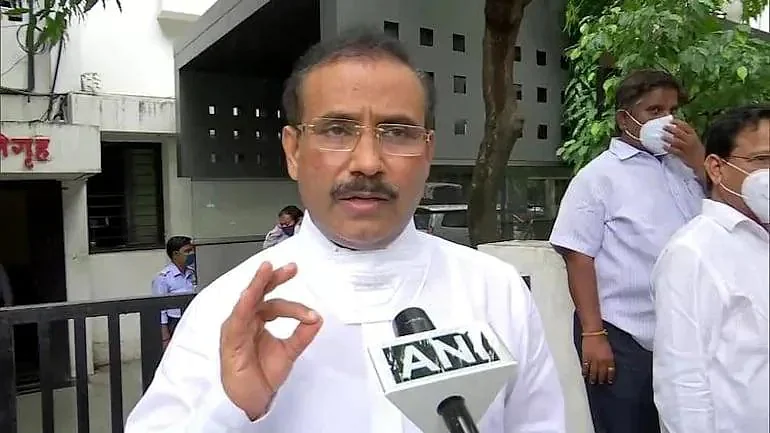Educators across India are looking forward to positive enhancements in the education sector with the 2022 Union Budget scheduled to be presented by the Minister of Finance and Corporate Affairs of India, Nirmala Sitharaman.
The budget for the sector was slashed from Rs 99,311 crore in 2020-21 to Rs 93,224 crore in 2021-22, which has led to increasing demands ranging from rising in budget allocation to initiating funding in specific sections owing to the shift in digital learning. Professors, directors, and educators from prominent institutions, in a conversation with the Free Press Journal, have expressed their thoughts on the push the education sector needs for sustainable growth, especially during a pandemic.
"A substantial rise in budget allocation towards the higher education sector, at least up to 6% of the GDP, is expected. To tap the full advantage of the demographic dividend that India currently enjoys, a massive up-gradation of educational infrastructure at all levels is needed," said Dr Anand B, Assistant Professor at Sarla Anil Modi School Of Economics, NMIMS who regularly writes for reputed national and international journals like Indian Economic Review, Central Bank Review, Energy Economics and London School of Economics.
"There must be provisions to distribute mobile phones and laptops among the weaker sections of the society either free of cost or at substantially subsidized rates, while also making massive public investments in infrastructure up-gradation, which includes the unhindered supply of electricity and penetration of high-speed internet across the country," Dr Anand added while also emphasizing the importance of Edtech platforms by providing tax concessions/exemptions and more fund allocation through the Startup India flagship programme for them.
According to Director of Faculty Development Cell, All India Council for Technical Education, Colonel B Venkat, a collective approach between the Centre and State to bring on developments in the education sector is necessary. He believes that National Research Foundation, an autonomous body envisaged under National Education Policy (NEP), should be highlighted. "NRF, which provides research-oriented mechanisms and has sufficient grants allotted to it, aims to fund researchers working across streams in India," Col Venkat added.
"Increasing government spending on education to 6% of GDP across the centre and states from the current levels of just over 4.43 % is something that I am looking forward to. Investment in education should be diversified, ranging from junior, secondary, higher secondary education, as well as medical science, technological, mechanical, scientific and social fields, for balancing educational development because it has an impact on sector-wise steady economic growth," suggested Dr. Srinivasan R.Iyengar, Director of Jamnalal Bajaj Institute of Management Studies. Speaking on corporate entities making contributions to universities and research centres, he said, "Contributions made by a corporation, foundation or any other grant-making entity to a University or research centre under an institute-industry partnership, should be eligible for deduction from taxable income. Corporate Social Responsibility (CSR) benefits to industries for providing more academic support to schools and college should be considered."
Dr.Srinivasan further added that much attention needs to be focused at the micro-level between rural and urban areas of a country, "Appropriate governance mechanisms need to be created for implementation under National Education Policy (NEP). Resource allocation generally includes educational funds, teachers, research, training development, and teaching infrastructure (e.g., school land area, buildings, accommodation facilities, and electronic medium). Over 250 million students are expected to enrol in schools in India by 2030. With a teacher-student ratio of 1:35, India needs an estimated 7 million-plus teachers to address this huge student population. More fund allocation is required from the government’s end to overcome the acute shortage of quality teachers."
Niyati Bhanja, Associate Professor & Area Leader, Business Management Area at MICA Ahmedabad, said that though budgetary allocations reaching pre-pandemic levels are important, considering the increasing budget deficit is also key as the exchequer shouldn't be burdened. "Research and skill development, especially in higher education, needs urgent attention from the authorities while also focusing on scholarships wherein women from different communities can avail the benefits and pursue research without obstacles. Since dropout rates from schools and colleges are something India has been tackling for a long time, schemes that directly engage people in skilled jobs who can't or don't want to pursue education should be initiated," said Prof. Bhanja.
She also welcomed Edtech's entry into the education sector. "Edtech being unregulated does dampen its reliability in the future and thus it needs a clear regulatory framework under AICTE, UGC, or other bodies. Edtech also provides valuable certificates through its courses and thus it's high time we provide a pathway to them in the future," she recommended.
For some like Neelima Verma, an Assistant Professor from CME in Pune, looking at models of other countries when it comes to providing timely grants is something that she expects to be replicated through the budget. "We need faster sanction and access to grants so that we can take our research projects forward often the delay, which goes up to two years in some cases, leads to the project losing scope," said Prof.Verma who also expects the government to focus on subsidizing or providing resources such as laptop, internet, tablets, etc. for the faculty to not face financial constraints in teaching students.





